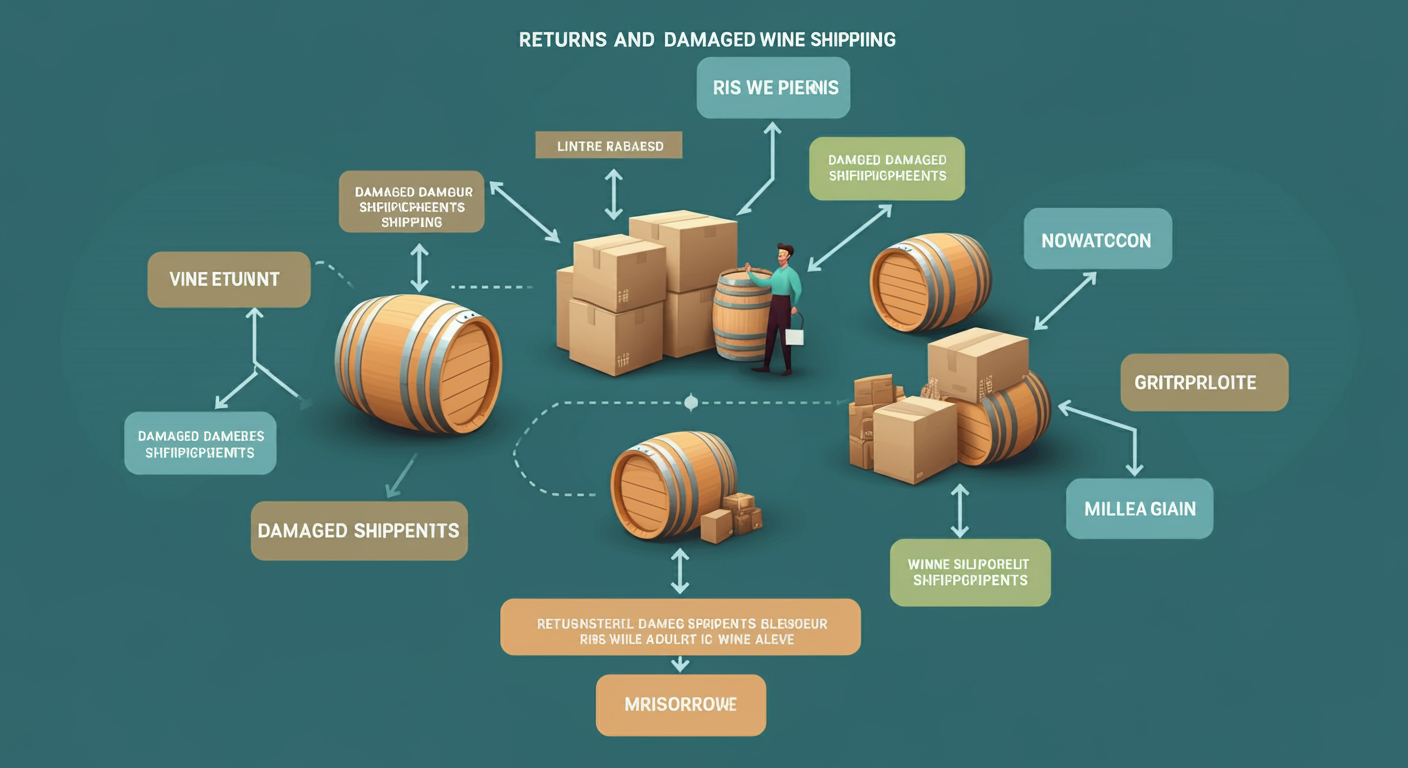
How to Handle Returns and Damaged Shipments in Wine Shipping

1. Be Clear About Return Policies
Start with a well-communicated return policy. Make it accessible on your website and include it in order confirmations. A clear policy helps manage expectations and builds trust.
-
Key Details to Include:
- Timeframe for returns (e.g., 7 or 30 days after delivery).
- Condition requirements (unopened bottles, intact packaging).
- Who covers shipping costs for returns?
2. Evaluate the Damage
If a shipment arrives damaged, act quickly. Train your team to respond empathetically and gather details for insurance claims or refunds.
-
Steps to Take:
- Request photos of the damaged package and bottles.
- Note whether the damage occurred during transit or packaging.
- Keep records for carrier claims or quality control improvements.
3. Partner with Reliable Carriers
Shipping wine comes with specific risks, so working with experienced carriers like FedEx or UPS is essential. They understand wine shipping regulations and offer insurance options tailored to your needs.
4. Invest in Secure Packaging
The best way to avoid damage is prevention. Use specialized wine shipping boxes with protective pulp inserts. These are eco-friendly, durable, and designed to absorb shocks during transit.
5. Provide Exceptional Customer Service
Mistakes happen, but handling them gracefully can turn a frustrated customer into a loyal one.
-
Tips for Success:
- Apologize sincerely for the inconvenience.
- Offer quick resolutions, like a replacement or refund.
- Go the extra mile with a small gesture, like a discount on the next purchase.
6. File Carrier Claims Promptly
If the damage occurred during transit, carriers often provide compensation. Be prepared to file claims quickly with all required documentation, including photos and invoices.
7. Educate Your Customers
Help customers understand proper storage and handling to minimize issues on their end. Include tips on unboxing and storing wine for optimal quality.
Final Thoughts
Handling returns and damaged shipments doesn’t have to be a headache. Don’t forget—our wine shipping boxes with pulp inserts are here to make your job easier and keep your customers happy.
Explore our collection today and ship wine with confidence!

